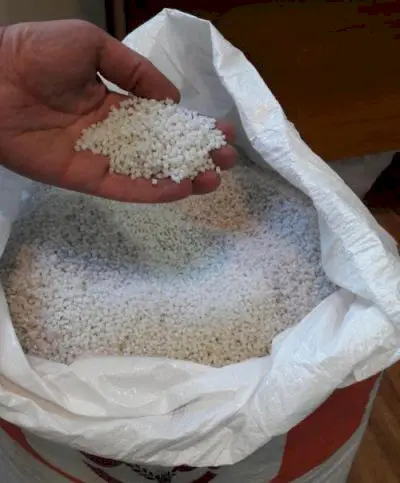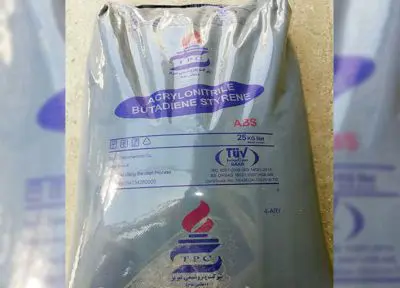West Asian ABS Plastic Market
ABS plastic is one of the most important and widely used commercial polymers. The main application of ABS is in the manufacture of car body parts and the automotive industry. Asia is home to abundant reserves of the key feedstock required for ABS production, such as acrylonitrile, butadiene, and styrene. Increasing applications of ABS have led to the development of other alloys to address its shortcomings. ABS is a matte amorphous thermoplastic polymer that is suitable for industries such as plastic injection that require hard, durable and inexpensive plastic.
What is Acrylonitrile Butadiene Styrene?

Acrylonitrile Butadiene Styrene (ABS) is a common thermoplastic polymer known for its toughness, impact resistance, and dimensional stability. It is a copolymer composed of three monomers: acrylonitrile, butadiene, and styrene. ABS combines the desirable properties of these three components to create a versatile material widely used in various industries. This monomer provides ABS with chemical resistance, heat resistance, and hardness. It enhances the material's overall strength and stability. Butadiene is responsible for ABS's impact resistance and toughness. It gives the material the ability to withstand sudden shocks or impacts without breaking or cracking.
ABS is used in various automotive components, including interior trim, dashboard parts, exterior body panels, and wheel covers. Its impact resistance and dimensional stability make it suitable for these applications. ABS is one of the popular materials for 3D printing due to its strength, durability, and ease of use in the printing process. It's worth noting that while ABS possesses numerous advantageous properties, it is not suitable for all applications. It may not offer the same level of chemical resistance as certain engineering plastics, and it can experience degradation when exposed to prolonged sunlight or high temperatures. Therefore, it is essential to consider the specific requirements of the intended application when selecting a material.
What is Acrylonitrile Butadiene Styrene?, Read More ...
Add your import and export orders to this list
Warning: Undefined variable $formTitle in /home/anbar/domains/anbar.asia/anbar/inc/html/desktop/orderform.php on line 10
Warning: Undefined variable $marketName in /home/anbar/domains/anbar.asia/anbar/inc/html/desktop/orderform.php on line 12
Warning: Undefined variable $location in /home/anbar/domains/anbar.asia/anbar/inc/html/desktop/orderform.php on line 12
If you want to trade in the , please join in Anbar Asia. Your order will be shown here, so the traders of contact you

What are the uses of ABS plastic in the industry?

ABS exhibits a balance of mechanical properties that make it highly desirable for various applications. It combines toughness, impact resistance, and rigidity, allowing it to withstand mechanical stresses and impacts without breaking or deforming easily. This makes ABS suitable for applications where durability and structural integrity are essential. ABS has good thermal stability, meaning it can withstand a wide range of temperatures without significant degradation. It retains its mechanical properties even at elevated temperatures, making it suitable for applications that involve exposure to heat or temperature variations.
ABS is commonly utilized in the manufacturing of household appliances. It is used for producing parts such as refrigerator liners, washing machine and dryer components, vacuum cleaner housings, and control panels. ABS is employed in the construction industry for various applications. It is used for manufacturing pipes, fittings, and valves due to its chemical resistance and durability. ABS sheets are used in architectural models, signage, decorative panels, and interior design elements. ABS is a popular choice for manufacturing toys and recreational products due to its impact resistance and ability to be molded into intricate shapes. It is commonly used in building blocks, action figures, puzzles, model kits, and sporting goods.
What are the uses of ABS plastic in the industry?, Read More ...
Which of Asian petrochemicals produces ABS polymer?

Asia is home to abundant reserves of the key feedstock required for ABS production, such as acrylonitrile, butadiene, and styrene. The region has access to significant petroleum and natural gas resources, which serve as the raw materials for the production of these monomers. Proximity to raw material sources reduces transportation costs and ensures a stable supply, making Asia an attractive location for ABS production. Asian countries, particularly South Korea, Taiwan, and Japan, have well-established and advanced petrochemical and polymer manufacturing industries. These countries have made substantial investments in infrastructure, research and development, and production capabilities to support the petrochemical sector. They have developed sophisticated manufacturing processes and technologies for efficient and high-quality ABS production.
Asia is experiencing rapid industrialization, urbanization, and economic growth. This has led to increased demand for ABS and other plastics in various industries, including automotive, electronics, appliances, and construction. The presence of large consumer markets in the region, coupled with the expansion of manufacturing sectors, has created a favorable environment for ABS production. Asian petrochemical companies have been able to achieve cost competitiveness in ABS production. Factors such as lower labor costs, economies of scale, efficient supply chain management, and access to raw materials contribute to cost advantages. This allows Asian ABS producers to offer competitive pricing in the global market.
Which of Asian petrochemicals produces ABS polymer?, Read More ...
Application of ABS polymer in plastic injection

ABS is extensively used in the automotive industry for injection-molded components. It is used for manufacturing interior parts like dashboard panels, door trims, center consoles, and instrument clusters. Exterior parts such as grilles, bumper covers, mirror housings, and wheel covers are also commonly made from ABS. ABS is widely used for injection-molded enclosures for electronic and electrical devices. It is used for housing components like computer and laptop casings, TV and audio equipment enclosures, control panels, and various consumer electronics.
ABS is utilized in the injection molding of appliance components such as refrigerator liners, washing machine and dryer parts, vacuum cleaner housings, and control panels. Its durability, impact resistance, and resistance to heat and chemicals make it suitable for these applications. ABS is a popular choice for injection-molded toys and recreational products. It is used for manufacturing building blocks, action figures, puzzles, model kits, toy vehicles, sporting goods, and many other plastic toys. ABS is used in the injection molding of certain medical devices and equipment. It is suitable for applications that require good impact resistance, chemical resistance, and ease of sterilization. Examples include medical equipment housings, cases, and disposable components.
Application of ABS polymer in plastic injection, Read More ...
Advantages and disadvantages of using ABS polymer in plastic injection

ABS has excellent impact resistance, making it suitable for applications that require components to withstand mechanical stresses and impacts without breaking or deforming easily. ABS is relatively easy to process using plastic injection molding techniques. It has good flow properties, allowing for the production of intricate and complex part geometries with high dimensional accuracy. ABS can be easily modified or blended with other polymers or additives to enhance specific properties or achieve desired characteristics. This versatility allows for customization and adaptation of ABS to meet specific application requirements.
ABS has relatively lower heat resistance compared to some other engineering thermoplastics. It can soften or deform under high temperatures, limiting its use in applications that involve exposure to elevated temperatures. ABS is prone to degradation when exposed to ultraviolet (UV) radiation from sunlight. This can result in color fading, surface degradation, and reduced mechanical properties over time in outdoor applications. ABS is less resistant to weathering compared to certain other polymers. It may experience yellowing, cracking, or degradation when exposed to prolonged sunlight, moisture, or harsh environmental conditions.
Advantages and disadvantages of using ABS polymer in plastic injection, Read More ...




